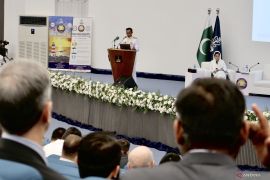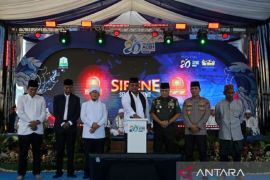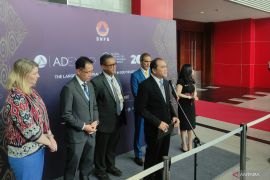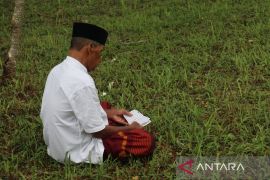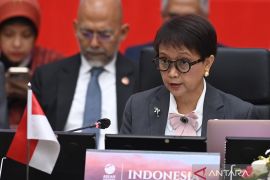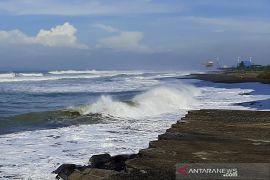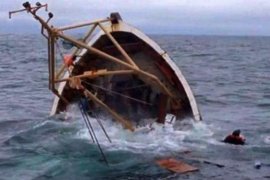"It is possible that the Indian Ocean would be a conflict of interest of various countries," Arief Havas Oegroseno said.Jakarta (ANTARA News) - Deputy of Maritime Sovereignty at Coordinating Ministry for Maritime Affairs, Arief Havas Oegroseno, said the Indian Ocean was projected to be a conflict of interest among big countries.
"It is possible that the Indian Ocean would be a conflict of interest of various countries," Arief stated after attending National Seminar on Regional Maritime Security here on Monday.
Two countries, namely India and China, are competing for influence in the Indian Ocean region, which is allegedly rich in oil.
China relies on sea routes in the Indian Ocean region to import crude oil, while India is located in South Asia bordering the Indian Ocean.
"The Indian Ocean region is also important for Indonesia, as the country exports commodities to Europe and Africa through sea trade lanes in the area. The ships that come to Indonesia also use the trade routes," he noted.
Therefore, Indonesia seeks to eliminate the influence of the major countries of the region in an attempt to create regional security and stability.
"We do not want the Indian Ocean region to become a new hot spot. We have spent much energy to assist in the resolution of the South China Sea conflict," he remarked.
Indonesia needs to create regional stability among the coastal countries of the Indian Ocean (Indian Ocean Rim Association/IORA).
The issue of piracy in the Indian Ocean becomes a common concern for countries in the region. As much as 41 percent of piracy worldwide occurs in this waterway, with a loss of billions of dollars.
However, Indonesia faces challenges to play a major role to maintain peace in the Indian Ocean.
"Several countries in the Indian Ocean coast have weak economy. Poor countries do not have the ability to maintain maritime security," he underlined.
To overcome this problem, Indonesia recommended the "blue economy" at the IORA summit held on March 7.
The conference resulted in Jakarta Concord, which is a document to guide member states to respond to the challenges, both in the region and globally.
"Blue economy becomes one of the points in Jakarta Concord, which was signed by the leaders and representatives of 21 member countries of IORA," he pointed out.
Indonesia plays a role in helping coastal states which have a weak economy to develop cooperation in the maritime, marine, and other sectors.
Indonesia also expects support from countries with established economies to participate in the "blue economy."
Coastal countries can share their experience, strategy, and management of fishery sector.
Foreign Minister Retno Marsudi earlier remarked that Jakarta Concord was a strategic document of the IORA that could serve as a guide for its member states to respond to global challenges.
"Concord is the first document of IORA to respond to global challenges in the future," Retno stressed.
The IORA ministers have endorsed the Jakarta Concord to be signed and adopted by the leaders of the member states at the IORA Summit.
The Jakarta Concord carries three important issues to strengthen the six IORA priority issues, which have been in place since the beginning, and to establish cooperation in the future. The issues are related to womens empowerment, blue economy, and democracy, Retno remarked.(*)
Editor: Heru Purwanto
Copyright © ANTARA 2017
